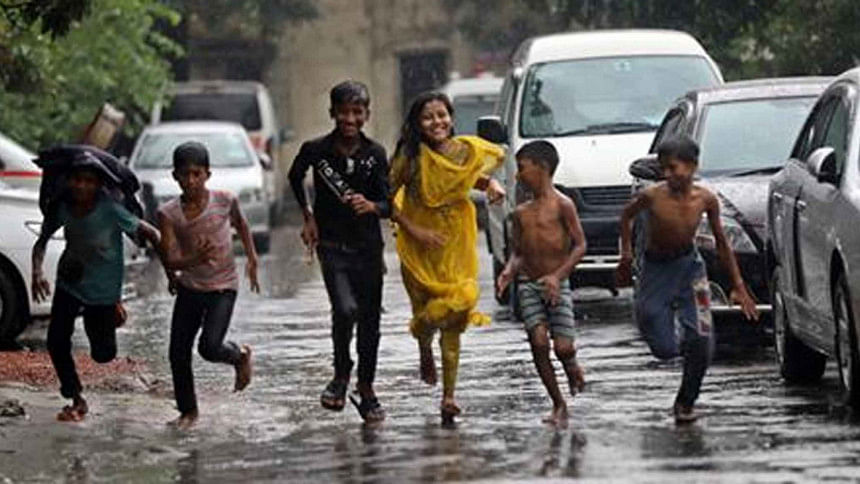Bangladesh sees lowest July rain in 41 years


While monsoon is supposed to be at its peak in July, the country witnessed less than half the average rainfall during the month this year.
According to Bangladesh Meteorological Department, the average rainfall this July was 211 millimetres – 57.6 percent lower than the average July rainfall over the last 30 years, and the lowest since 1981.
The average 30-year rainfall was 496mm.
In 2020, it was 553mm -- 11.3 percent higher than the average, while last year, it was 471mm -- 5.1 percent lower.
Low rainfall is affecting the country's rice production, as some varieties of the staple grain are heavily dependent on rain water.
Meanwhile, the temperature saw a considerable rise this month compared to the historical average. The average maximum temperature was 33.7 degrees Celsius this July -- a 2.6-degree rise from 30-year average of 31.1 degrees Celsius, Met office data showed.
"We are facing an extraordinary weather pattern this year. The July rainfall this year has been the lowest the country has seen in the last 41 years," said Md Abdul Mannan, meteorologist of BMD, told The Daily Star yesterday.
The situation was similar in June, with the average rainfall seeing a 3.6 percent drop, and the temperature a 0.6-degree rise.
"In last three years, we have been recording a rising trend in the country's temperature, while rainfall variation has been unusual. We are observing an abnormal weather pattern for the last few years."
Explaining the reason behind the erratic rainfall and rise in temperature, he said Bangladesh, like the rest of the world, is experiencing the impact of global warming and climate change.
"This is hampering the lives and livelihood of the country's people, especially in the agriculture sector."
EFFECTS ON CROPS
The unpredictable weather has caused farmers to struggle, as they were preparing for Aman cultivation and growing Aush -- both rain-fed crops.
Due to poor rainfall, they had to opt for supplementary irrigation.
Aman accounted for 39 percent of the total annual grain production, estimated at around 3.80 crore tonnes, during the 2021-22 fiscal year.
The grain's production is dependent on rain as the process of preparing seedbeds for transplanting seedlings is almost over during the peak June-August rainy season, according to agriculturists.
They said the mild heat wave is also worrying for farmers and agronomists as any delay in transplantation will reduce the overall yield.
The government has a target to bag 1.63 crore tonnes of rice to offset the losses of Boro and Aush crops.
Until yesterday, farmers transplanted Aman on 9.96 lakh hectares of land, out of the government's target of 56.2 lakh hectares, according to the Department of Agricultural Extension (DAE).
Farmers have prepared seedlings on 2.90 lakh hectares so far.
Habibur Rahaman Chowdhury, director of the field services wing of the DAE, said the transplantation was delayed this year, but there is still time to complete it.
"Due to a lack of rainwater, farmers had to irrigate and increase the production cost a bit, but we are hopeful of the situation improving this month."
As Aush and Aman are both rain-fed crops, supplementary irrigation was needed in many areas. "If that isn't ensured by the government, the impact on rice production will be severe," said AMM Shawkat Ali, former food adviser to the caretaker government.
"The government should arrange and ensure irrigation for farmers free of cost to reach the production target."
Md Shahjahan Kabir, director general of the Bangladesh Rice Research Institute, said seedlings of shortly matured varieties need to be transplanted within 15-20 days to ensure maximum output. If the time exceeds, the yield will decline.
"As rainfall was poor, only supplementary irrigation can ensure good production. We have instructed farmers to do it, but many of them aren't doing it due to high cost."
He said the problem is multifaceted. "Delayed planting will reduce production and supplementary irrigation will increase cost."

 For all latest news, follow The Daily Star's Google News channel.
For all latest news, follow The Daily Star's Google News channel. 








Comments